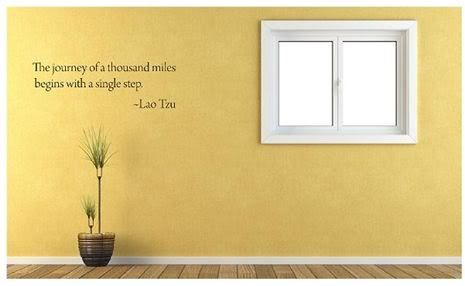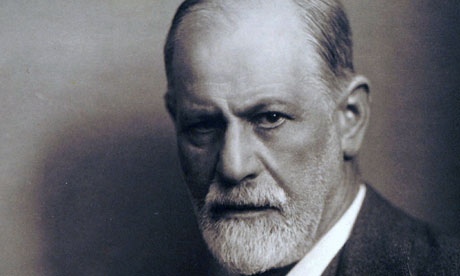Practice never makes perfect. Perfection is not of this world (as philosophers since Socrates well knew and preached). Practice is simply another word for learning. And learning, like education, is a journey, mental and otherwise. Unlike some ‘abstruser musings’, better left to philosphers, practice is akin, linguistically and pragmatically, to the practical. After thousands of hours of conducting interviews over several decades I believe I can give at least a few practical pieces of advice for those just beginning both to learn the rules of interviews (see Part I and II), and to play the game well.
Find a mentor. A mentor is someone who has experience with interviews. These mentors come in many shapes and ages.
A great mentor might be a student who has just been through the
alumni (or job, or selective student group) interview process him or herself. You
should select a person who you deem as a winner and a kindred soul. Winners are
not the ones who get into every school or get 20 job offers, but a record of success
is certainly one way to help you narrow the field of people who seem to know
what works. But, and this is a big but, the person you pick has to be a player
who competes in your league. What does this mean? If you pick the Intel winning
record breaking Lacrosse player who also saves kitties from trees and does HBO
stand up specials then you may have a great time talking with them but you will
not likely learn much except you perhaps humility. You need to pick someone
with a common data set. I do not mean a clone, I simply mean someone with whom
you share certain traits.
I am hesitant to be more specific as I do think each
of us can learn a great deal from virtually anyone else; nevertheless, in terms
of interviews, having a mentor who has shared certain cultural and life
experiences indicates you may be placed in a similar group of candidates when
being interviewed. What I am explicitly not advising is for you to try to
imitate the answers the mentor may have given and then shared with you. I think
there is an ethical line between learning from what someone else did and
paraphrasing what someone else said or did in your own interview. The number of
factors that a mind doing the interviewing is assessing numbers in the hundreds
of millions if we take a neural count, so just mouthing the same words may not
in any way elicit the same response to another person or even the same person.
On the other hand, hearing the way the format works, the kinds of questions asked,
and the overall description of the process are all invaluable tools. But tools
come with instructions and warnings too.
If fellow students are sometimes good mentors, people in
career services offices or those who work in guidance offices in high schools, or even knowledgeable teachers all can help students prepare for interviews. They too will give basic advice like I
have just given. They too will impart useful knowledge. Seek them out. Be
assertive. The latter two things are skill sets that people look for in
students and employees. It is good practice to reach out and network.
At one of the magnet schools I visited in China I conducted 14
interviews in a day and I can still remember almost all of them. They were, as
a group, the most impressive set of interviews I have ever been a part of. I
asked the principle how each of her students could be so impressive; she
replied that the school had trained them over many days and many hours. The
cliché 'take pride in your work' applies to learning interview skills. Think
of it as a sport. Picking up a new sport almost always begins with basic and
boring stuff. Endless repetitions, and endless practices. But slowly the body
learns and teaches the brain. And now there is much data to support the same is
true even in more cognitive activities. In other words, it is body preparation
that creates a ready mind either in tennis or in an interview.
The ‘Je ne sais quoi’ Mystery
We all have an aura. We have all met people who command the
room. And we have all met people who seem to want to be invisible. Is it
possible to teach an invisible man to command a room? Maybe not, as we are
genetically wired and have years of life training that largely form who we are
by the age of 17. But practice works. A dead fish handshake is not something
hard to change. A smile and confident eye contact are easy too.
By the time the formal greetings are over the person doing the interviewing has already, consciously and unconsciously, made a huge number of assessments. Those first 20 seconds are, like the opening of a commercial or a youtube video, going to determine if what follows will be entertaining. Mentally, an interviewer may have already revved up for something fun or already be thinking about dinner and kids and who knows what else.
For example, one of the things that the national business
fraternity, AKPsi, does with its new members is to teach them interview basics.
And by this I don't mean answering questions. Instead, they start from the ground
up. They evaluate the way a student walks in the room, the eye contact, and the
handshake. And I think they are absolutely right for doing so. Studies with
what I would call scientifically based data demonstrate that humans make instant
classifications when meeting someone. This helped for survival in
hunter-gatherer days and it still helps, sometimes, in a world in which we are
meeting endless streams of people in life. Friend or foe might be the rubric.
.
Freud, The Family Romance, and Hardball:
.
Freud, The Family Romance, and Hardball:
Students should spend lots of time talking to adults. It is
great practice. The language a student uses with adults should not be the
demotic argot of current phrases passed effortlessly among peers as code for
entry into the young adult club.
Everyone knows this but knowing and doing are often at odds. Some of you know just what I mean. You are at dinner with mom and Dad.
Dad/Mom: How as your day?
You: OK. (Followed by sullen look which those familiar with
Latin phrase would call the Noli Me Tangere aura).
Dad/Mom: Well, how was practice?
You: All right. Coach K made us do endless reps. It kinda
sucked.
Dad/Mom: Do you have to use that word?
You: I could think of worse
Dad/Mom/You; (long pause, looks exchanged, sounds of mastication
echo across walls).
Dad/Mom: Are you...
You (interrupting) Do we have to have this endless conversation?
I have tons of work, a test tomorrow, a game the next day, test prep, and then
the academy awards party. I’m going to my room.
Studies show that single children often are better at things like interviews simply because they have spent countless hours around a dinner table talking to grown-ups. And not in the way I have just created above. Growing up with grown-ups often means that there is more trust and more comfort. These two qualities make it much easier to hold a conversation, with parents or interviewers.
I have interviewed
hundreds of students from China. If this counts as a form of data-gathering and
research, then I can say that the one child policy has prepared many of these
students to feel completely at ease with an adult even in a second language.
But the emotional baggage we all have with family made Freud a
household name so it might be better to find a trusted adult to converse with
and practice answering questions. But again, find someone who has some
experience either conducting interviews or who has had recent success
interviewing.
If you are brave and willing to risk putting yourself in a situation
that will require mental and verbal acuity, trust, and faith, then I would
advise trying to find a wild card. A wild card is someone who thinks the Socratic
method of questioning is still about the best way of learning. But almost
anyone who ever came in contact with a disciple of Socrates will say that some
of the questions were incredibly tough and some were downright intrusive.
Nevertheless, most will say that they learned how to respond well to any question anyone might ask.
I work with students on interviews I make it clear from the
outset that I have absolutely no filter. I will ask anything and expect an
answer. I tell students that if anything makes them uncomfortable, then it is
their responsibility to speak up. If this sounds like a worst nightmare
scenario it usually isn’t. Questions can range from the typical: favorite class
and teacher and subject soft balls to the ninety five mile an hour fastball I
have hurled hundreds of times: “Are some cultures better than others?”
I recently asked this question on Quora.com and received some opposing responses. That is the point. In real time, when I ask this
question, I follow up the answer, whether it is yes or no, by challenging my
interviewee with every rhetorical tool I have. Sometimes the debate gets
heated. And sometimes I change my mind based upon what I have heard. And
sometimes the interviewee does too.
I learn what students
think and then I want to challenge their assumptions. People who learn to go
through tough training are ready to perform well in a game situation.
Practicing with easy questions will increase comfort and while this is certainly
useful, stepping up to answer zingers from someone will prepare you for
almost anything. But answering tough questions is only one part
of the equation necessary to solve the space/time quandary that is the dark
matter of interviews. The real secret is yet to come.
.
.
Final
Chapter: In an upcoming entry, I will address the most important pat of
the interview process: how to become a subset of one with words instead of formulas.







No comments:
Post a Comment